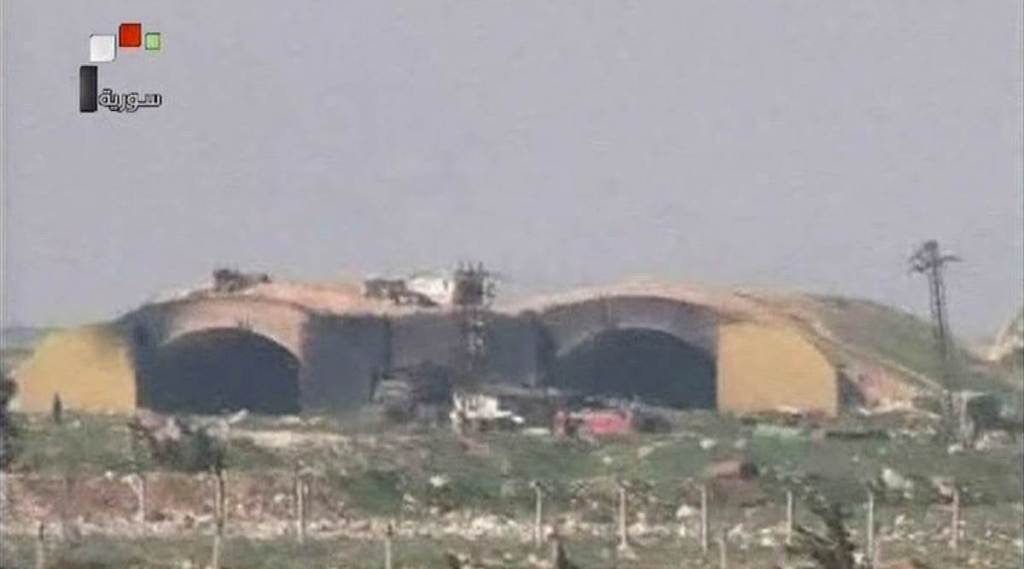A suspected Syrian government chemical attack reportedly killed dozens of people, including children, in the northwestern province of Idlib on Tuesday, a monitoring group, medics and rescue workers in the rebel-held area said. The attack left many more sick and gasping, causing widespread outrage. The US government believes the chemical agent sarin was used in the attack, a US government source said, adding it was “almost certainly” carried out by forces loyal to Syrian President Bashar al-Assad.
Watch this video
Here are top 10 developments
1. If confirmed, the incident reported in the town of Khan Sheikhoun would be the deadliest chemical attack in Syria since sarin gas killed hundreds of civilians in Ghouta near Damascus in August 2013. Western states said the Syrian government was responsible for that attack. Damascus blamed rebels.
2. The Syrian military denied responsibility and said it would never use chemical weapons, echoing denials it has made over the course of the more than six-year Syrian civil war that has killed hundreds of thousands, created the world’s worst refugee crisis and drawn in nations such as Russia, Iran and the United States.
Watch this video
3. The attack sparked political recriminations. U.S. President Donald Trump blamed it on his predecessor Barack Obama’s “weakness” on Syria. “Today’s (Tuesday) chemical attack in Syria against innocent people, including women and children, is reprehensible and cannot be ignored by the civilised world,” Trump said in a statement. “These heinous actions by the Bashar al-Assad regime is a consequence of the past administration’s weakness and irresolution,” he said.
4. The United States, Britain and France have proposed a United Nations Security Council resolution to condemn a suspected deadly chemical weapons attack in Syria, which diplomats said is likely to be put to a vote on Wednesday.
Watch this video
5. Syria’s leading opposition group, the National Coalition, blamed Assad for the Khan Sheikhun attack and demanded that the United Nations “open an immediate investigation” and hold those responsible to account.
6. The attack on the town of Khan Sheikhun killed at least 58 civilians and saw dozens suffer respiratory problems and symptoms including vomiting, fainting and foaming at the mouth, the Syrian Observatory for Human Rights monitoring group said. At least 19 children and 13 women were among the dead, the Observatory said, and an AFP correspondent in Khan Sheikhun saw many people on respirators.
7. The incident brought swift international condemnation, with the United States, France and Britain all pointing the finger at Assad. The White House condemned what it called a “reprehensible” attack by Assad’s forces. UN envoy Staffan de Mistura said the attack was believed to be chemical and launched from the air, adding that there should be a “clear identification of responsibilities and accountability”.
8. Russia’s military, which has been fighting in support of Assad’s government since September 2015, denied carrying out any strikes near the town.
9. Khan Sheikhun is in Idlib province, which is largely controlled by an alliance of rebels including former Al-Qaeda affiliate Fateh al-Sham Front. The province is regularly targeted in government and Russian air strikes, and has also been hit by the US-led coalition fighting the Islamic State group, usually targeting jihadists.
10. Damascus officially joined the Chemical Weapons Convention and turned over its declared chemical arsenal in 2013, as part of a deal to avert US military action. That agreement came after hundreds of people — up to 1,429 according to a US intelligence report — were killed in chemical weapons strikes allegedly carried out by government troops east and southwest of Damascus. But there have been repeated allegations of chemical weapons use since, with a UN-led investigation pointing the finger at the regime for at least three chlorine attacks in 2014 and 2015.


